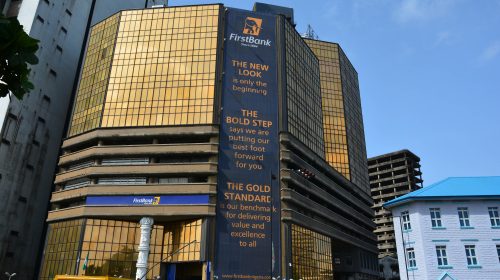Stakeholders canvass integration of Nollywood into capital market

By Ngozi Onyeakusi–Some stakeholders have called for the integration of Nollywood into the capital market to deepen the market as well as boost funding for Nigeria’s entertainment industry.
This call was made at the Capital Market Correspondents Association of Nigeria 2023 workshop with the theme, ‘Leveraging Capital Market In Financing The National Development Plan.’
Speaking during a panel discussion at the event, the Head, Ecosystem Integration, VFD Group, Mr Folagbade Adeyemi, pointed out that despite the poor funding available to players in the media and entertainment sector in Nigeria, they have been able to deliver high returns and gained global reckoning.
He said, “There is a section of the economy that has been delivering high growth but has been fully excluded; entertainment and media. Recently, a movie, Black Book, came out. It was one of the highest-viewed movies on the streaming platforms across Nigeria, across Africa and globally. We were invested in it.
“The truth is, Nigeria, South Korea and India probably have the highest compound value per person in this sector. Nigeria has the highest currently compared to the amount that we invest per capita which is $15 and we see much work.
“The next to us is India, which is about $45 per capita, then South Korea. These are major hubs on entertainment and media, and not only does it come with its own product, it also comes with its own value chain.
“There is a growth in that space, we just haven’t created structure for it and until we can create structure around it, we won’t actually see significant returns.”
Adeyemi added that at this point, the capital market and its players needed to build structures that would drive the entertainment structure.
He also called on regulators to provide the framework that would make that happen.
“I think the onus is on the market to build structures around driving entertainment. As much as possible, the regulator is there to create a framework for safety and structure but ultimately, if you look at the west and you look at the east, typically, there are different ways to drive entertainment into the market.
“I think the market has to work on offering different structures that the regulator will review, endorse and then ultimately push.”
Proffering financing options, Adeyemi said, “You can either use a fund-type structure or you can use a securitisation framework, which simply means that you securitise based on the back of royalties of these assets or do some kind of bonds.
“The issue is I don’t think that sector of the economy has been fully integrated or connected to the core of the economy and I think that is why someone like the VP, Kashim Shettima, few weeks back mentioned the fact that there has been a historic disconnect, he apologised and promised integration.”
Responding, the Deputy Director, Securities and Exchange Commission, Lagos Zonal office, Mr John Briggs, stated that the Commission was receptive to offering a regulatory framework for the media and entertainment sector of the economy.
Meanwhile, Adeyemi, added that more focus needed to be placed on bringing the younger generations into the capital market.
“The future of finance is in the younger generation. Right now, conversation should be around how the fintech mobilised that last mile so intelligently, more than the capital market and made it such a success. If we tap into that, we will be able to make as much progress as we need to,” he concluded.
The PwC in its spotlight on the Nigerian Film Industry released July 2017 stated that Nollywood is globally recognised as the second largest film producer in the world.
The Industry is a significant part of the Arts, Entertainment and Recreation Sector which contributed 2.3 per cent (N239 billion) to Nigeria’s Gross Domestic Product (GDP) in 2016.
It was one of the priority sectors identified in the Economic Recovery and Growth Plan of the Federal Government with a planned $1bn in export revenue by 2020.
Nonetheless, existing challenges will have to be addressed to take Nollywood to the next phase.
PwC suggested that issues of financing and infrastructure, copyright infringement, distribution and marketing channels, taxation and capacity needed to be addressed.





Leave a Reply